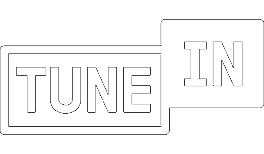Also Available On






Podcast Transcript
WHATCHA THINK?
This is Shirene Gentry with the Identity Unveiled book and podcast. I hope if you haven’t already grabbed a copy of my book on Amazon, you’ll do so. It’s a combination of a remarkable story of my suspected, and circumstantial, biological origin only discovered in 2017 as well as a memoir of sorts as I tell the story of my adopted family of origin. More than that, it describes how each of us walked in wrong identities for worth and value. How is that? What does that mean, specifically? It means that our thinking was flawed. Each person, myself included, interpreted our life experiences in such a way that got us off track. Off track emotionally, off track in feeling secure, off track in feeling validated, off track in our actions.
This podcast is a byproduct of the book which continues to delve into concepts in further depth. So, if this is your first time to join me, thank you so much! How about we journey together in reclaiming your identity that God has spoken over you?
Today’s podcast is about how you think. Nothing – and I mean nothing – will set your path on the right path to your God-given identity than HOW you think. It is foundational. I cannot stress enough how important your thought life is.
I was out earlier this week in my yard pulling weeds. What really makes me crazy is when there’s a plant or bush that has weeds growing within and up through the plant or bush. In one small section of our yard, which has been somewhat overgrown, I honestly don’t even know what’s legitimately a plant or bush and what is a weed.
Such it is with our thought lives. How so? What’s a legitimate thought based in truth and what is a weed? A lie? A misbelief?
On the outset let me say that I will not be addressing some of the unique situations that require psychotropic medication. There are certain diagnoses that absolutely require medication to stabilize the neurotransmitters in the brain, and I will not be discussing those unique situations. If you are concerned about the status of your mental health, please see a psychiatrist, nurse practitioner, or a licensed therapist who can guide you professionally to see what your specific needs are. This podcast is not a replacement for therapy or assessment of any kind.
With that being said, what have you learned or what do you believe about what you think about? Have you ever thought about it? Today would be a good place to start. You absolutely can learn to pay attention to what you think about. We know that the brain is capable of forming new neural connections – new ways of thinking – that can be transformative to our lives. The scientific word for this is neuroplasticity. We can, in fact, learn to change the way we think. Many aspects of the brain can be changed while we are in our adulthood.
Here’s the challenge: Many times in our childhood and formative years, we simply interpret what is happening in our lives – our experiences, our ways of coping (or not), our perceptions – without ever questioning if our thoughts are fact checked for truth. We simply interpret and perceive based on how we interpret and perceive. Our childhood mind isn’t capable of using cognitive tools of assessing what is actually true unless a primary caregiver is alongside us to speak truth to us. This is my story. I never questioned what was occurring in my life because it was what it was, without fact checking for actual truth.
Unless your thinking is challenged, you can easily carry these thought patterns into adulthood until they don’t work for you.
From a scriptural standpoint, what are we told? Romans 12:2 states that we are to be transformed by the renewing of our minds. The implication in that verse is that it’s a command, but how do we do that? John 17:17 is Jesus’ prayer for believers to be sanctified by God’s truth. One last verse is found in II Corinthians 10:5b: “…bringing every thought into captivity to the obedience of Christ.” How is this done?
My personal opinion based on my own life story and transformative thinking is that God is not threatened with what Scripture says and His supportive care of those people who can be put into your path to reach the goal of mental goodness and health. Specifically, what we know from a cognitive and neuroscience standpoint dovetails beautifully with what the bible has told us in the aforementioned verses. What God reveals in special revelation and what He reveals in general revelation do not threaten each other as long as what is discovered by man is held up in light of the truths and backdrop of Scripture.
Listen carefully! It can be the difference in the following:
- The difference between conviction and condemnation
- The difference between confidence and comparison
- The difference between victor and victim
- The difference between remembering how far you’ve come and being stuck in the past with what ‘used to be’
- The difference between clarity and doubt
- The difference between seeing the bigger picture and the experience of your pigeonholed life event
How do I know? Because I used to be on the right side of every one of those points! I’ve had to do the hard work of looking at life differently. This is the difference in knowing your true worth as a son or daughter of the King. The challenge is that you can’t move past the past! And I get it. I used to be there.
As a life coach, I ask the question: What are the first steps?
I’ve put together a simple formula that will assist you in the process:
Aware – Are you simply aware of whatever you are thinking about? Your thoughts are fast and furious, strung together so fast that you don’t even question them most of the time.
If you saw the movie Inside Out, the production was brilliant. One scene shows a runaway train on a track behind one of the animated characters. This is a brilliant part of the message conveyed. Our thoughts are that runaway train. The question is…Is the train on the right track headed to the right destination?
Here’s where the next step comes in.
Beliefs – Your beliefs, assumptions, perceptions – on the conscious and unconscious levels – simply runaway, just like the train on the track. Eventually, these affect your emotions – either positive or negative. In turn, emotions lead to actions and behaviors, which, if continued on that train track, lead to consequences.
Thoughts to emotions to actions to consequences.
This is the sequencing.
If you find that your emotions are not working for you but are working against you, then stop and back up that train. And not that all ‘negative’ emotions are bad. They notify you of what is going on. But sometimes, you can’t let emotions direct the train.
Ask yourself this question: What have I been thinking – without even thinking about it – that has led me to this emotional state?
For example, if you see a glass half full with water, what is your first, automatic thought? It’s half full? Or half empty? Here’s my point. You can train your brain to view the glass half full as well as your day to day interpretation of your experiences and events.
Outlier situations of an acute life stressor are different. Life can be very hard. I’m not here to minimize what someone can face in a given day that can stop you or them in their tracks. I’m simply referring to day to day experiences and how you interpret them.
A is for awareness; B is simply paying attention to what your belief system is.
Choice is your conscious decision to pay attention to your inner world and see if it’s based on truth or a lie of some kind. Choice is simply to recognize that your thought life can change. Yes, it’s hard work, but it CAN be done.
Here’s the truth: If you believe something, you will act as though you believe it whether it’s true or not. (Repeat)
Here’s a statement posted by Dr. Caroline Leaf on her IG account, and this directly relates to my book:
“Don’t let unexamined thoughts write your life story. Write your own story.”
In the field of counseling, we refer to our inner dialogue as self talk. What you think and believe determines how you feel and what you do. If your thinking is based on lies that aren’t really true, you will continue to live in a past, painful chapter. To write your own story is to pay attention to what you believe to be true, see if it actually IS true, and then write a new chapter. Most of the time when we are stuck in the past, an erroneous, incorrect misbelief keeps you writing the same, old chapter which seems to continue to be written in the present and therefore continues to be written into the future.
Let’s think about some practical examples and perhaps work in reverse. By that, I specifically mean let’s pay attention to your emotions and then take a look back at what you might be thinking.
Here are some questions to get you started:
Are you feeling anxious? What is currently going on in your life that is making you feel this way? Is your anxiety revolving around “what ifs”? In other words, are you dwelling on a scenario that actually isn’t based on any truth at all or simply what possibly could be? If it hasn’t happened, then there’s nothing to validate that thought. Much of what people worry about actually doesn’t and hasn’t occurred. Or…play out the scenario. Ask yourself what is the very worst thing that could occur? Would it really be that bad?
What about beliefs about yourself or your life? Maybe you need to examine some of the voices from the past that spoke misbeliefs, mistruths into your heart and mind that you never questioned. Did someone tell you you’d never succeed in a particular area? Or do you live your life thinking you actually need to prove something? This would show up in your actions. Remember what that thought train looks like: thoughts, emotions, then actions (or inaction). If you face each day with something to prove and striving toward performance, what kind of thinking has brought you to this point? It’s worth the time and effort to find out! Wouldn’t you love for your work day to simply be just that?
Science shows that some anxiety is a good thing because it is motivating in that it assists us in accomplishing our daily tasks and makes us productive. If you can imagine a bell curve, it would be just enough anxiety on the left side of that curve. Once the anxiety hits the center or the curve or continues down that right side, then it’s too much and becomes counterproductive.
These are just a couple of examples about how our thought lives can affect our daily experience.
Sometimes your thought life needs to be determined in a larger, more existential framework of your experience. It’s interesting that so many people really don’t know God well enough to know His heart toward us, but He seems to be the easy target for when one’s life hits a rough patch. This all goes back to one’s belief about God in the midst of their hardship. Wrong thoughts about who God is leads to bitterness toward Him. That should be a huge red flag as to who He really is. In other words, if you’re blaming Him for something that has occurred, there is all kinds of error in your thoughts. Just because you may feel a certain way towards God doesn’t mean it’s true. In fact, I’ll go as so far to say it’s in fact very much incorrect.
I actually dedicated the middle section of my book to this very concept. In my own life, I needed to know God wasn’t distant, even though I thought He was. Do you see the error? My misbeliefs about Him led to my negative emotions about Him.
A is for awareness; B is to pay attention to your belief system, whether true or not; C is for the choice to change, and next is D.
Decide if your inner world is simply working for or against you. I can now say that my thought life is truly working for me. This was not the case for many, many years.
Once you have invited the Holy Spirit into your thought life, I promise that God will direct where you need to change your old patterns of thinking, and He will sanctify you with what is absolutely true, noble, right.
So here is another question: Do you feel like your life needs changing? To change your life, then a change in the way you think about your life is needed.
In my own life, I needed to reconceptualize what my upbringing was like. No, it didn’t change the facts of my upbringing, but reframing my thoughts to think of it differently, allowed me to move forward with no anger, no bitterness, no unforgiveness. It’s not forgetting your life story. In fact, it’s remembering it but learning to think about it differently.
Going back to that concept of neuroplasticity, if you’ve learned how to wire your thinking in a particular pattern, the great news is that you can wire it out of your brain to form a new, more productive and truthful way of looking at something that will be beneficial to your emotions.
How about today be the day that you begin to talk (back) to yourself instead of simply listening to yourself?
This is not by any means an all inclusive podcast to address your thought life, but my sincere prayer is that it gets you started on the right track, not the runaway track that leads to nowhere.
As always, if you have questions, feel free to email at hopeunveiled@gmail.com.
Let me close with this encouragement and challenge: I’m at the point in life that I know beyond a shadow of doubt that regardless of what may happen due to either God’s sovereignty that allows it, my worth and identity is found in my creator and not my earthly experiences. That thought alone allows me to walk confidently in His love, care, and protection, knowing that I will get through it all. He will carry me. He will carry you, too. Why? Because you are a son or daughter of THE King of Kings! When you begin to live from this belief, you will walk confidently through life regardless of what occurs.
Until next time, this is Shirene Gentry with the Identity Unveiled book and podcast. Change your thoughts and change your life.
About The Author

Shirene Gentry
Shirene is a Board Certified Master Christian Life Coach through the American Association of Christian Counselors and has professional memberships with the AACC and the International Christian Coaching Association.
